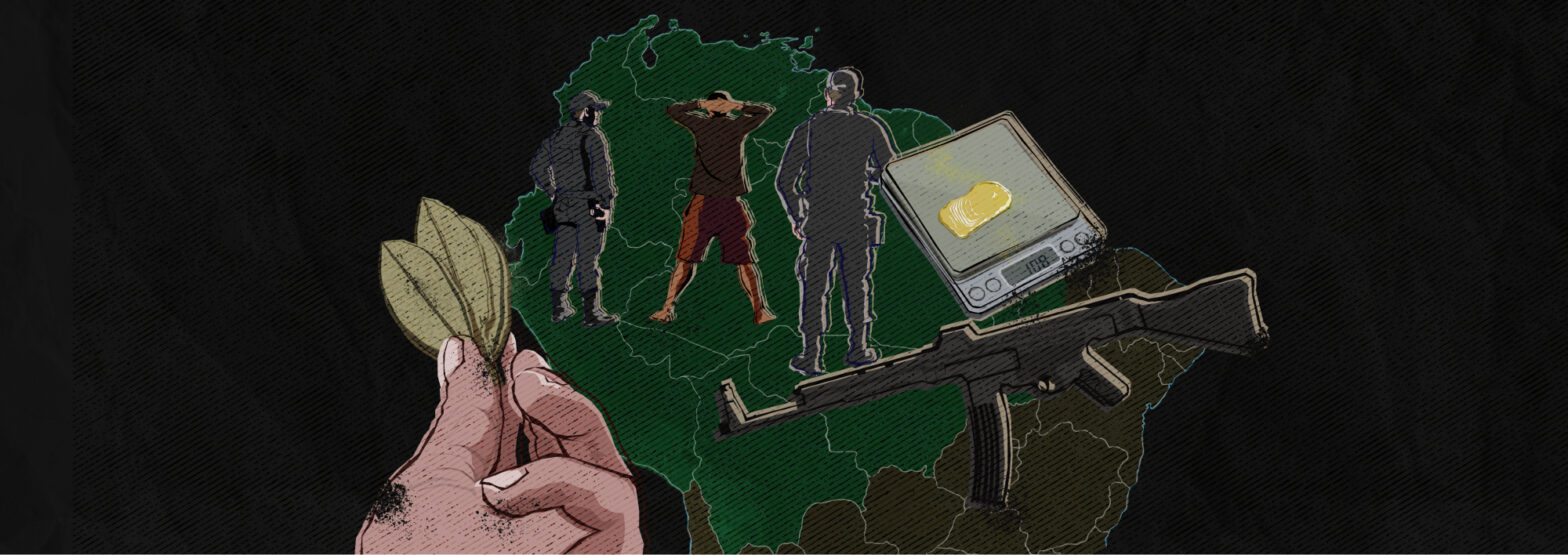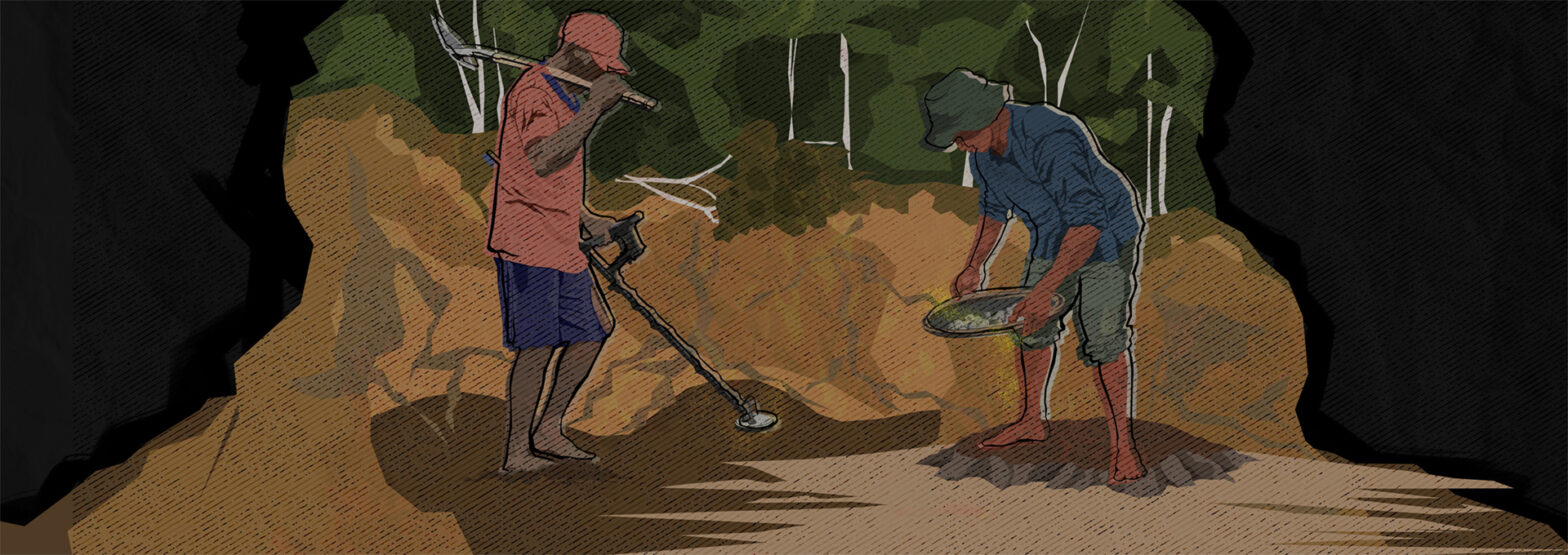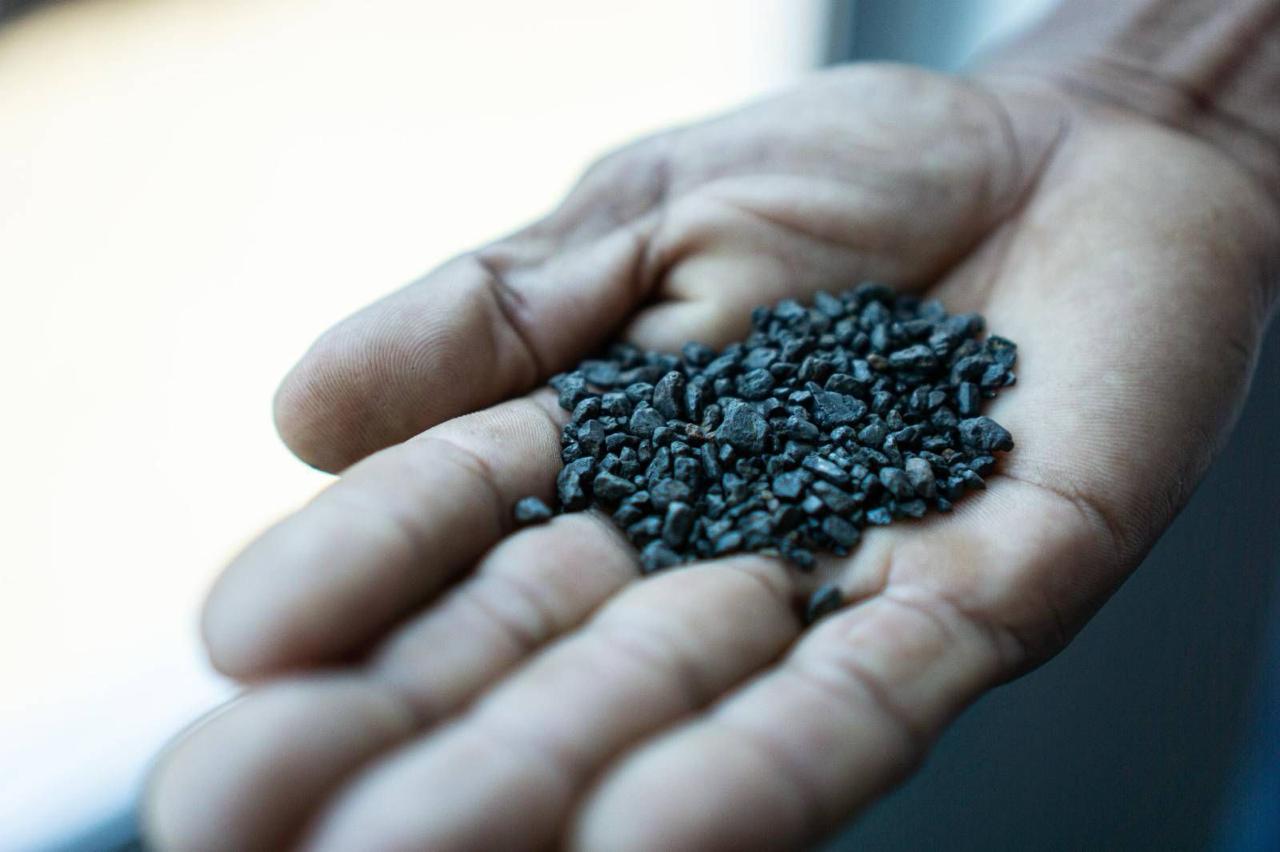Brazilian criminal groups prey on young Venezuelan migrants, especially unaccompanied minors, who cross border in search of jobs.
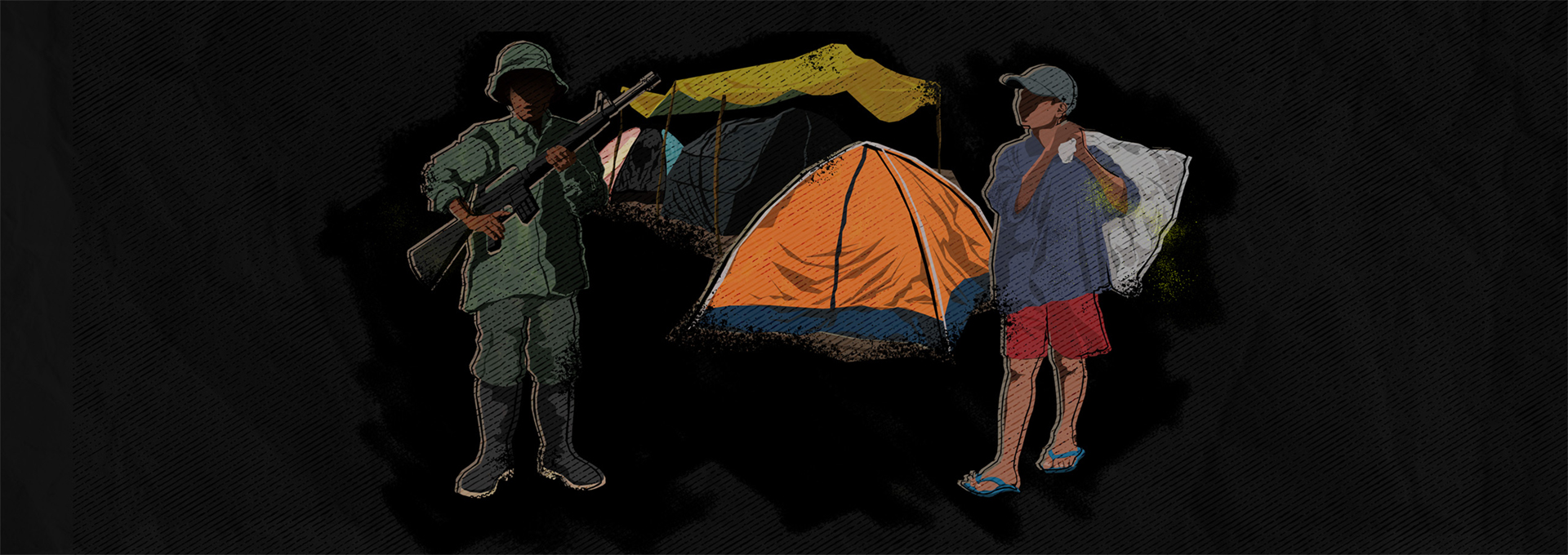
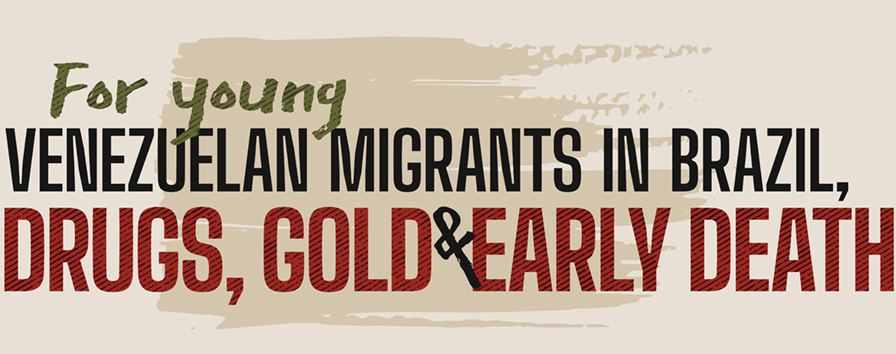
By Emily Costa, Mariana Rios and Rodrigo Chagas
Miguel has a new job. It looks like he’s managing a café — in the place he oversees, a young man is serving coffee to a group of Brazilian boys, all of whom appear to be under age 18, who are sitting around a wooden table in a palm grove overlooking a small creek.
But the boys aren’t there for the coffee. They’re after the drugs.
Miguel* came to Brazil from his native Venezuela half a dozen years ago to escape the economic, political and humanitarian crisis that has wracked his country for nearly a decade. And his new job, running a drug den in Boa Vista, in the northern Brazilian state of Roraima, is a reward from his employer.
His employer is the Primeiro Comando da Capital (PCC), or First Capital Command, a criminal group born in São Paulo’s prisons in the 1990s, which has branches throughout the country, links to criminal groups in neighboring nations and now a strong presence in the Amazon region. There the PCC has diversified and found new ways of financing itself. Besides drug trafficking, it is active in illegal gold mining and illegal fishing.
So how did a Venezuelan become a trusted gear in the machinery of a Brazilian criminal organization?
Miguel, a charismatic man in his early 30s, crossed the border into Brazil in 2014 at the town of Pacaraima, some 200 kilometers (124 miles) north of Boa Vista. A year earlier, Venezuela’s economy had collapsed under the weight of political turmoil, widespread corruption and the devastating decline of its poorly managed oil sector, which had been the country’s economic backbone. The situation worsened in 2017 when the United States imposed financial and economic sanctions, further isolating Venezuela’s struggling economy, which was already grappling with hyperinflation.
For many families, there is not much left but misery, which has caused more than 7 million Venezuelans, especially young people, to leave the country since 2014, according to the U.N. Refugee Agency. Almost 500,000 have migrated to Brazil.
It’s common for entire Venezuelan families to sleep for days or weeks in the streets of Pacaraima while waiting to get the documents they need to enter Brazil legally. Some remain, cobbling makeshift shelters out of canvas and cardboard, because they lack funds to continue their journey or do not want to stray far from their homeland’s border.
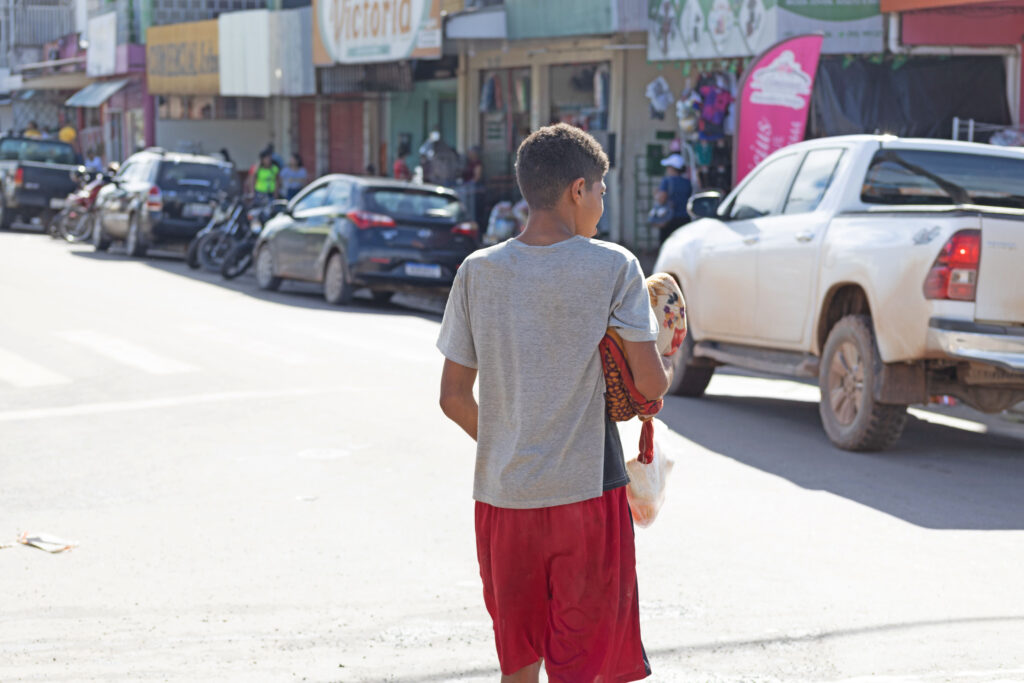
When he arrived, Miguel spent a few weeks in a house with other Venezuelans, sharing the space with other people in transit who needed affordable shelter, as well as some who were involved in the small- and large-scale drug trade. When police raided the house, he says, he was arrested along with other residents.
“They tied us to each other and made us walk through the streets of Pacaraima. I had never felt such shame in all my life,” he says.
He ended up in Boa Vista’s Monte Cristo Agricultural Penitentiary, where he was housed in a cell block with PCC leaders. They considered themselves more civilized than the other groups, because they abided by a kind of code of conduct and mutual support.
Recruited in prison by the PCC, he began selling drugs for the criminal group after he was released. It’s a trade learned by example, he says of the “brotherhood”: “Anyone can talk, even a parrot can talk. Now I want to see how someone lives a life of crime.”.
Carlos Alberto Melotto, a prosecutor in a group charged with combating organized crime in Roraima, has testified in court that Venezuelan inmates in Brazilian prisons are recruited by Brazilian criminal groups. He said investigators have also detected communication between low-level leaders of Brazil’s PCC and Venezuelans linked to that country’s Tren de Aragua, a criminal group that was born in the penitentiary in Tocorón, in the state of Aragua, about 130 kilometers from Caracas.
Like the PCC, the Venezuelan organization takes advantage of the flow of migrants to expand its influence, establishing alliances for drug and gold trafficking, as well as sexual exploitation of women. It is one of Venezuela’s main criminal organizations, operating not only in Roraima, but in other states in northern Brazil, and is alleged to have connections in Bolivia, Chile, Colombia, Ecuador and Peru.
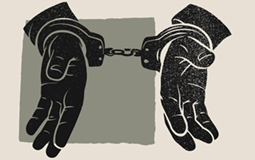
A CONVERGENCE OF CRIME
One place where drug trafficking, organized crime and illegal gold mining, known as garimpo in Portuguese, have converged is in the Yanomami Indigenous Territory, which shares a long border with Venezuela west of Boa Vista. For decades, the area has been a magnet for illegal miners, or garimpeiros, but the PCC’s presence drew particular attention in 2021, when members of the group were involved in a series of attacks on Indigenous communities in the Palimiú region that were resisting invasions by miners.
This year, the area has again been the scene of conflict and murders involving Indigenous people and miners. In the first week of May, there were at least 14 deaths around the Indigenous community of Uxiu, an area with a large number of garimpeiros. Among the victims were three Venezuelans, two men and a woman. The deaths occurred after miners attacked the Indigenous people. Three were shot and one died.
Criminal groups target Yanomami territory
Proximity to the border town of Pacaraima and Boa Vista, the capital of the state of Roraima, makes the illegal gold mines in the Yanomami Indigenous Land a magnet for Venezuelan migrants and the criminal groups that prey on them.
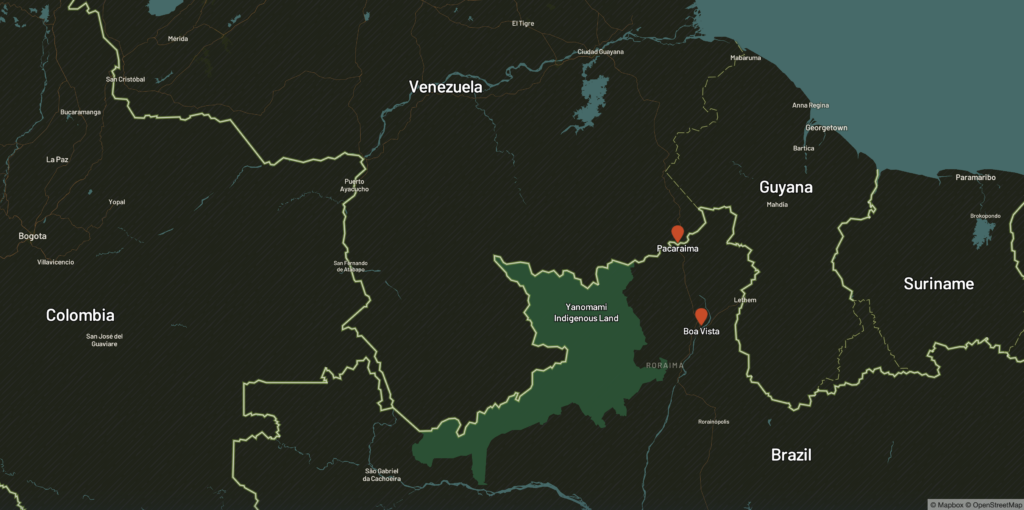
According to a survey published in 2022 by the Hutukara Yanomami Association, Brazilian criminals from the PCC infiltrated the miners in Roraima, first by providing security, and later by diversifying into managing freight services and houses of prostitution. The survey estimated that half of the Indigenous reserve’s nearly 30,000 inhabitants were directly affected by mining.
The São Paulo PCC faction controls houses of prostitution and services near clandestine mining ports and landing strips. At strategic points, they set up places known as corrutelas — often equipped with bars, brothels and internet service — to receive goods and people. It was in one of these places that Maria* worked as a prostitute in an illegal mining area near the Uraricuera River in the Yanomami Indigenous Territory.
An attractive woman just over 20 years old, with manicured nails and numerous tattoos, she speaks nervously about a grotesque scene she witnessed. A garimpeiro had paid for sex and wanted to force a sex worker to marry him and dedicate herself exclusively to household tasks — washing clothes, cooking and having sex.
The young woman, who had gone to the mines to earn money as a prostitute, did not want to marry. She complained to the “owner” of the currutela, who executed the man in plain sight with a single shot.
Maria left the region afterward, but she eventually returned and was dating a PCC member there. The tension was constant, though, and she was thinking of escaping to a more “family-oriented” mining area.
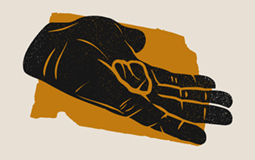
‘IT’S VERY HARD IN THE MINES’
Yordan,* a 23-year-old Venezuelan who spent six months as a garimpeiro in Brazil, said many migrants go to the mines through the city of Mucajaí in southern Roraima. Currently living in Manaus and working in construction, he says he never saw acts of violence or people carrying firearms during his time in the mines.
“Violence happens there when you do bad things,” he says, adding that people can stay out of trouble “if you work and don’t mess with anyone.”
He sent part of his earnings from the mining to his family in Venezuela and used some to buy items like a television and refrigerator for the house where he lives in Manaus. But he doesn’t plan to go back to the mines.
“Not any more,” he says. “It’s very hard in the mines. I didn’t like it. I went there out of need. That’s why I went.”
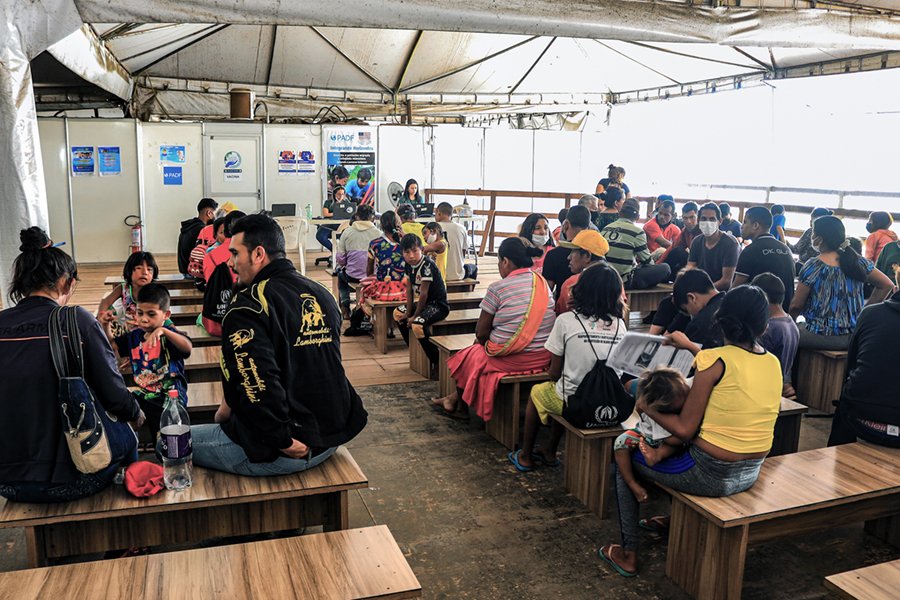
A 2021 report by the U.N. Office on Drugs and Crime (UNODC) warned of the risk of human trafficking in Brazil’s northern border region, noting especially the greater vulnerability of unaccompanied Venezuelan women, children and adolescents. But despite the risks, they continue to arrive. In the first three months of 2023, Brazil set a record for the entry of Venezuelans. From January until March, 51,838 migrants entered the country, according to the International Organization for Migration (IOM). Then, until June that number reached 95,189.
Murillo Martins of the Public Defenders Unit, which works especially with Venezuelan children and adolescents in Pacaraima, says it’s common for boys to arrive from mining areas in that country.
“They either say they were with their parents in the mines in Venezuela, or they say they were alone working there, and their story is mainly that they were coming in search of better conditions and work in Brazil,” he says.
In 2018, Brazil launched Operation Welcome (Operação Acolhida, in Portuguese), a militarized humanitarian effort to handle the flow of Venezuelans on the northern border. In a January 2022 report by the R4V inter-agency coordination platform, which gathers data about Venezuelans served by Operation Acolhida, 39% of the people in 800 households surveyed were age 17 or younger. Of those households, 42% were in Roraima or neighboring Amazonas, and 25% of the household members between ages 15 and 17 were not attending school, which is a basic right under Brazilian law. In 15% of the households, there was at least one child or adolescent whose parents had stayed in Venezuela or lived in another Brazilian state.
Some minors arrive alone, without identity documents, while others arrive with adults who are not relatives. Vulnerable, they become easy prey for criminal groups, whose influence has spread from the prisons to the streets.
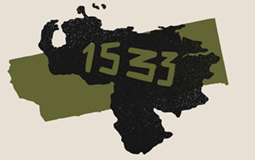
VENEZUELANS IN THE PCC
Local authorities have worried for years about the growth of criminal groups like the PCC and the Red Command or Comando Vermelho (CV), which has its roots in Rio de Janeiro, and which expanded to Roraima beginning in 2013.
The situation has worsened in recent years. In 2016 and 2017, two massacres in the Monte Cristo Agricultural Penitentiary, the state’s largest prison, left 43 inmates dead. The riot came after a split between the PCC and CV that led to a series of prison massacres in Brazil, reflecting the way the groups have expanded through the country’s prison system. In 2018, a series of attacks on banks and public agencies in five cities in Roraima was further evidence of the PCC’s foothold.
After the uprisings, the Monte Cristo Agricultural Penitentiary was placed under federal control until 2022, when it had a population of 1,800 men, 226 of them Venezuelans.
Prison population per 100,000 inhabitants
In six years, Roraima has doubled the proportion of prisoners, jumping from 315 to 702 per 100,000 inhabitants – a figure 80% higher than the country’s average.
According to data obtained by Amazon Underworld through the Freedom of Information Law, between 2020 and 2022, the Federal Police in Roraima conducted 19 operations against criminal groups in the state, 18 of them against members of the PCC and one against members of the CV.
The best known was Operation Triumphus in 2020, which identified a nucleus of Venezuelans in the PCC in Roraima. In August of that year, the state prosecutor’s office charged 19 foreigners between ages 24 and 46 with coordinating their organization’s internal disciplinary procedures, known as “criminal courts,” as well as managing drug sales points and storing weapons and ammunition.
Investigators in that case claimed to have found that at least 740 Venezuelans were members of the PCC, more than three times as many as are in the local prison system and equivalent to 40% of the 2,000 members that local authorities say the PCC currently has in the state, where the CV has around 500.
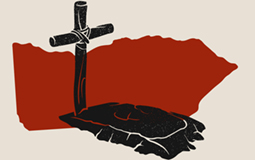
FAMILY BREAKDOWN AND EARLY DEATH
“First comes the family breakdown,” says Aminadabi dos Santos, coordinator of the Special Protection Department of Roraima’s Secretariat of Labor and Social Welfare. He has worked for 20 years with youth and adolescents in the region and ran a public shelter in Boa Vista for four years. In 2020, the shelter housed 30 residents, almost twice its capacity, mainly Venezuelan teens who had arrived in Brazil alone.
At a similar shelter in Boa Vista, José* sits on a wooden bench.
“I like to crochet. When I’m standing still, my hands and feet are like this, moving,” he says, his left leg swinging up and down frenetically. Just 15 years old, José has spent nearly half his life between the streets of Ciudad Bolívar, in his native Venezuela, and public shelters in Roraima.
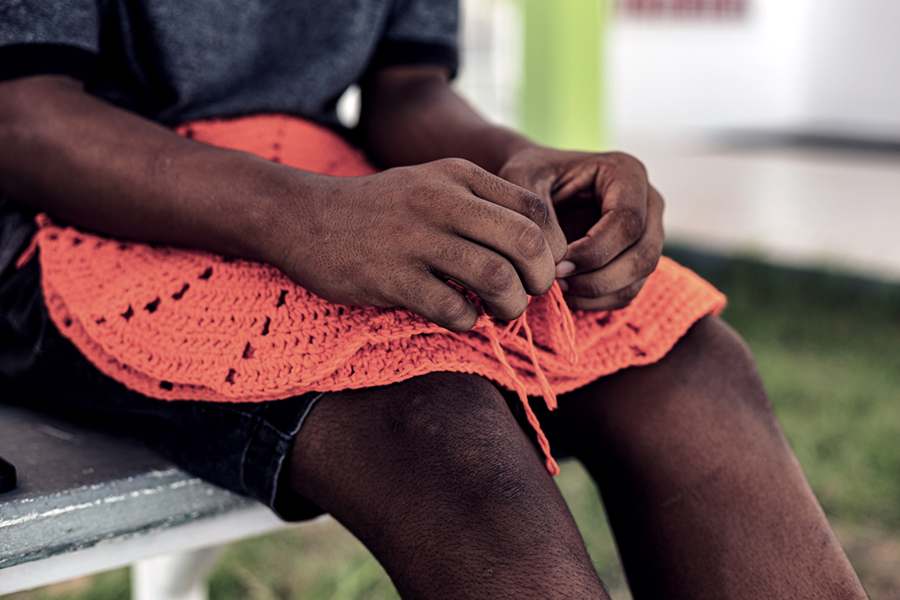
Before crossing the Brazilian border unaccompanied, he was in Venezuela’s southern mining region, waiting tables at a hot dog stand in a place known as Kilometer 88. He earned just enough to buy food, while seeing younger boys — some as young as 9 — already involved in drug trafficking. Afraid, he decided to leave.
“They liked me there and told me to stay, but I didn’t want to and came here,” he says, sitting in the courtyard of the newly renovated shelter where he lives, almost 1,000 kilometers (621 miles) from home. He wears black denim shorts, a gray polo shirt that’s a size too big and worn rubber slippers. In his hands he holds two crochet pieces in neon orange — his creations, he says, but unfinished. There is no yarn.
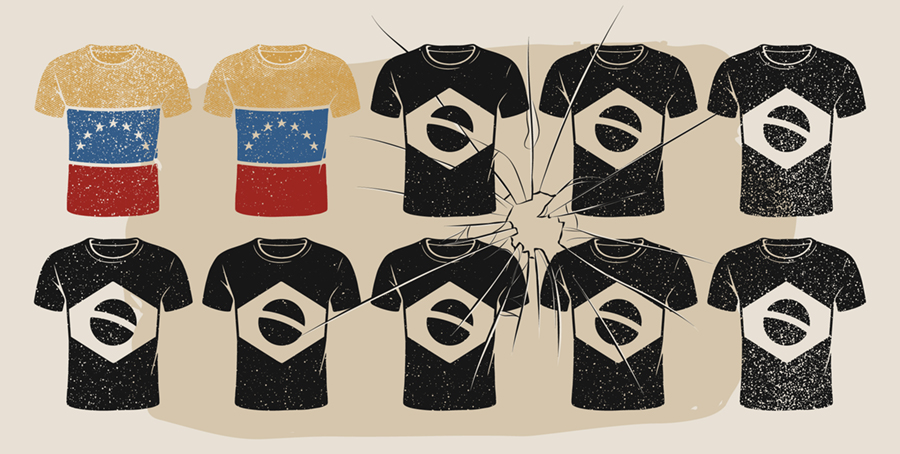
Data obtained through the Freedom of Information Law show that between 2019 and 2022, seven out of 10 teenage
homicide victims in Roraima
were male,
20% of them Venezuelan.
92% were Indigenous or of mixed race.
It was alone and at age 16 that Jesús Alisandro Samerón Pérez arrived in Pacaraima, telling the social welfare service at the border that he was looking for an opportunity in the country. In June 2019, his case was processed and he was given shelter in the town.
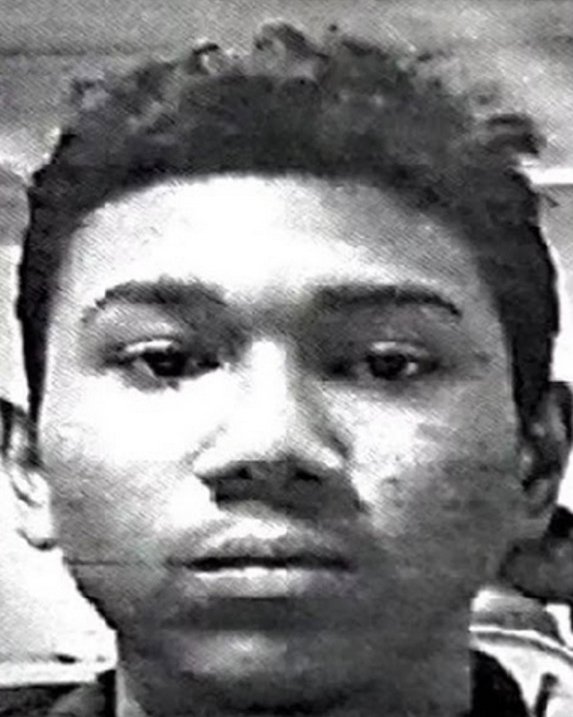
Four months later, he was found dead near a shelter for Venezuelans in Boa Vista. His body, with signs of torture, was wrapped in a garbage bag and left in a wheelbarrow.
According to the police investigation, Jesús was killed for a drug debt of $200 reais (about $40). The executioners, at least eight Venezuelans and one Brazilian, were identified as local PCC members. Four years after the murder — and despite media attention at the time — none of them is in prison.
Pérez is one more in a growing set of sad statistics of murders of adolescents and young adults in Roraima, the Brazilian state with the smallest population. There are just over 630,000 people in 15 cities, nearly two-thirds of them in Boa Vista, which saw its population grow by 45% between 2010 and 2022, making it the country’s fastest-growing state capital.
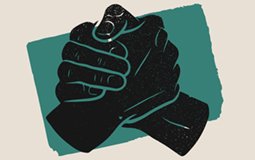
THE ‘BROTHERHOOD’ OF THE PCC
Despite its military-sounding name, the PCC does not operate as a hierarchy, but rather as a brotherhood, says Gabriel Feltran, a sociology professor at the Federal University of São Carlos in the state of São Paulo, who has written a history of the group.
“The PCC does not operate with the logic of controlling, dominating territories, co-opting people, forcing them to work, extorting,” he says. “The PCC always works by the logic of convincing — convincing that it is useful, that it is good to be part of these networks, being a brother, and that it will be good for business, for their lives. It will be an alternative.”
That fluidity has helped the group expand and also helps protect it against government efforts to combat organized crime. And in its 30 years of existence, the PCC has been diversifying its business beyond drug trafficking.
“Several other markets that were not previously the focus of the group’s activities came into the picture in these 30 years. The market for gold, cryptocurrencies, wood, urban and rural land, events, soccer players … where there is money and whoever has money can get in,” Feltran says.
“This way, they manage to have more access to weapons, lawyers, accountants, national and international networks, reaching the border areas — very important for national and international trade — reaching positions in retail, in wholesale, going from one state to another, making their alliances, meeting other people from international mafias, Italian, Russian, Mexican, Nigerian,” he adds,
The PCC works by the logic of convincing — convincing that it is useful, that it is good to be part of these networks, being a brother, and that it will be good for business, for their lives. It will be an alternative
— Gabriel Feltran
The group’s business operations in the gold mining regions are made possible by the amount of money circulating and a lack of oversight.
“If you earn 2 million reais [about $400,000] from cocaine trafficking, you can open and run your own restaurant. If you earn 200 million reais [about $40 million] over a few years, you can buy a garimpo and put a bunch of people to work for you there. And use that mining operation to launder your money, while producing gold and bringing wealth to you,” Feltran says. “And that’s how the PCC arrived, not only in the Amazon, but in all Brazilian states and many other countries. In several regions of the world, several continents.”
He sees no difference between the attraction of young Brazilians and Venezuelans to the ranks of the PCC in northern Brazil.
“What matters is the person’s commitment to crime, the attitude towards his peers and prioritizing the faction over everything else, including his own family,” he says. “Because this is the environment, to be anti-system.”
Nevertheless, the PCC does not have absolute control and faces opponents in the region.
“In the Amazon, there are many other armed groups that are not linked to the PCC, that are also opponents, like the FdN [Familia do Norte, which operates mainly in the Amazon], and the CV itself, which was allied with the PCC for a long time,” Feltran says. “And there are still armed groups that are local militias, linked to the police, colonels, local elites, landowners in the Amazon. So not everything that happens in the Amazon has to do with the PCC.”
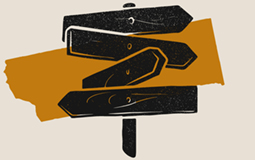
SEEKING A BRIGHTER FUTURE
In Pacaraima, a group of newly arrived Venezuelans walks single file along the highway toward the immigration office. Not far away, in a shelter, others lay clothes and shoes outside to dry, forming a multicolored mosaic on the grass. The presence of migrants changed the landscape of the city of about 20,000 inhabitants and led to efforts to help them settle in.
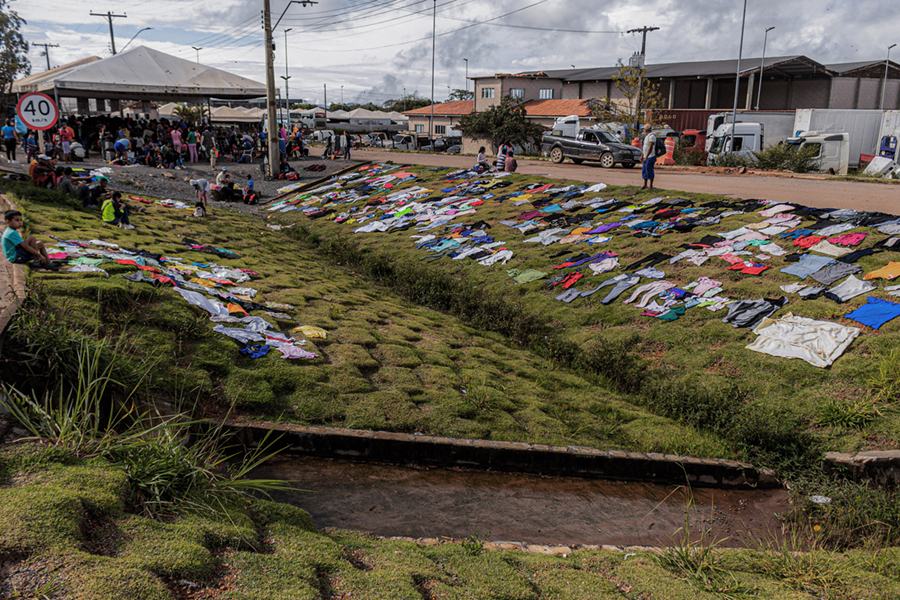
“We work to get these children and adolescents a legal immigration status and identify situations of vulnerability, of risk,” so protective measures can be taken, public defender Martins says in an interview on the grounds of Operation Welcome in Pacaraima. Unaccompanied minors arriving there are taken to shelters specifically set up for those under age 18.
“Roraima is on a triple border” with Venezuela and Guyana, says Moacir Collini, one of the founders of Crescer, a project that offers young people between ages 15 and 24 from the outskirts of Boa Vista activities such as crafts, baking and sports. “Institutions need to have the same presence as criminals do, to give young people prospects for the future.”
Beto*, a 20-year-old Brazilian who says his father and one brother were linked to the PCC and were murdered, participated in Crescer’s workshops in late 2022. Learning carpentry and baking gave him an alternative, he says.
“I saw my father dying, and then I saw my brother. And now I have my [1-year-old] son. And then I keep thinking about my life ahead, which path I am walking, which friendships. … They’ve already called me — to drink, smoke, kill, steal, go to the mines,” he says. “I’m not going.”
*Names have been changed
Amazon Underworld is a joint investigation of InfoAmazonia (Brazil), Armando.Info (Venezuela) and La Liga Contra el Silencio (Colombia). The work is carried out in collaboration with the Pulitzer Center’s Rainforest Investigations Network and financed by the Open Society Foundation, the U.K. Foreign, Commonwealth & Development Office and the International Union for Conservation of Nature (IUCN NL).


